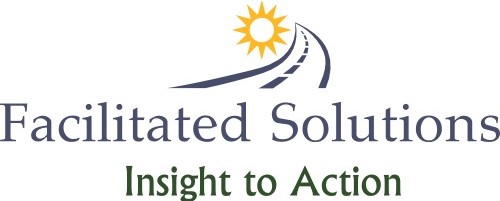The unknown in what might otherwise be a great topic or the opportunity to listen to a great speaker or panel is the Facilitator and their facilitation skills.
Many share the lock down experience of online webinars of variable quality. The frustration when the facilitator occupies too much of the time, speaks about themselves too much or is prone to reaction rather than using what had been said to progress discussion for participants.
An effective Facilitator assist others to make progress. A facilitator who cannot get out of the way, undermines the value of the topic and speaker.
Effective Facilitators do not allow their ego to delude themselves that they are the reason why people chose to participate or that they are the focus of discussion or that they are a key stakeholder.
Not a discussion centered on them, but a discussion between the audience or between the audience and the expert speaker(s).
Online webinars have also exposed misuse of the ‘power of position’ in appointing facilitators. Internally a manager or coordinator may be an obvious choice, but a senior role or an impressive title does not guarantee facilitation skills.
When the audience is external, the facilitator does not have the ‘power of position’ but needs the skills to engage and meet the needs of a broader audience. Inappropriate appointment of a facilitator exposes those better skilled at devaluing an important learning opportunity and boring an audience senseless.
In a recent webinar, a lawyer deemed that the participants role was to listen passively. He occupied so much time that there was insufficient time for Q & A. Despite being in the facilitator role, engaging the audience was of no interest to him. Instead he invested considerable time seeking to impress participants with his knowledge while proving his lack of facilitation skills.
In another recent example, a female ‘media personality’ ignored the diverse panel of four during Q & A to focus solely on the male panel members. The facilitator was blind to what was obvious to the audience and undermining the value of the discussion as a direct result.
In yet another example, a very well credentialled male academic appointed as Facilitator because of the power of his position, showed scant regard to the external audience and ‘hogged the floor’ at the opportunity cost of the excellent speaker engaging with her audience
Being a lawyer, a media personality, or an academic etc. does not make you a good facilitator. Facilitation skills do not follow naturally with a formal qualification.
Facilitation skills are rare when your major experience is talking ‘at’ rather than ‘with’ an audience. If your ego overcomes your communication skills, facilitation is not for you.
If your claim to fame is being you, and ‘off the cuff’ opinions, it is unlikely that you will be an effective facilitator.
Seeks speaking lecturing or court opportunities but please, for the sake of audiences everywhere, do not seek and do decline facilitation requests.
When you need a facilitator, confirm a person’s facilitation skills before appointment. Avoid those whose claim to fame is their ego or whose sense of self-importance brings with it an uncontrolled desire to convert others to their view or impress others with their intellect. They may be better on a panel, but can they attract an audience?
Don’t Start a Podcast is valuable advice from those made to suffer amateurish productions by those with questionable skills, qualifications, or experience.
Don’t Facilitate if You Don’t Know How is equally applicable to those who fail to understand that the role of a Facilitator is to allow others to make progress without imposing themselves on the audience.
Those who fail to understand that the advertised speaker(s) is who the audience have come to hear.
If you experience a Facilitator who thinks they are ‘the show’, send them this article. The egoists and self-important may not get the message. Even if one does, that is one more meeting where participants will get a better return on their time investment in a topic or speaker(s) they chose to listen to.
Facilitated Solutions provide skilled facilitators who understand their role is to assist, not get in the way of, participants progress!
